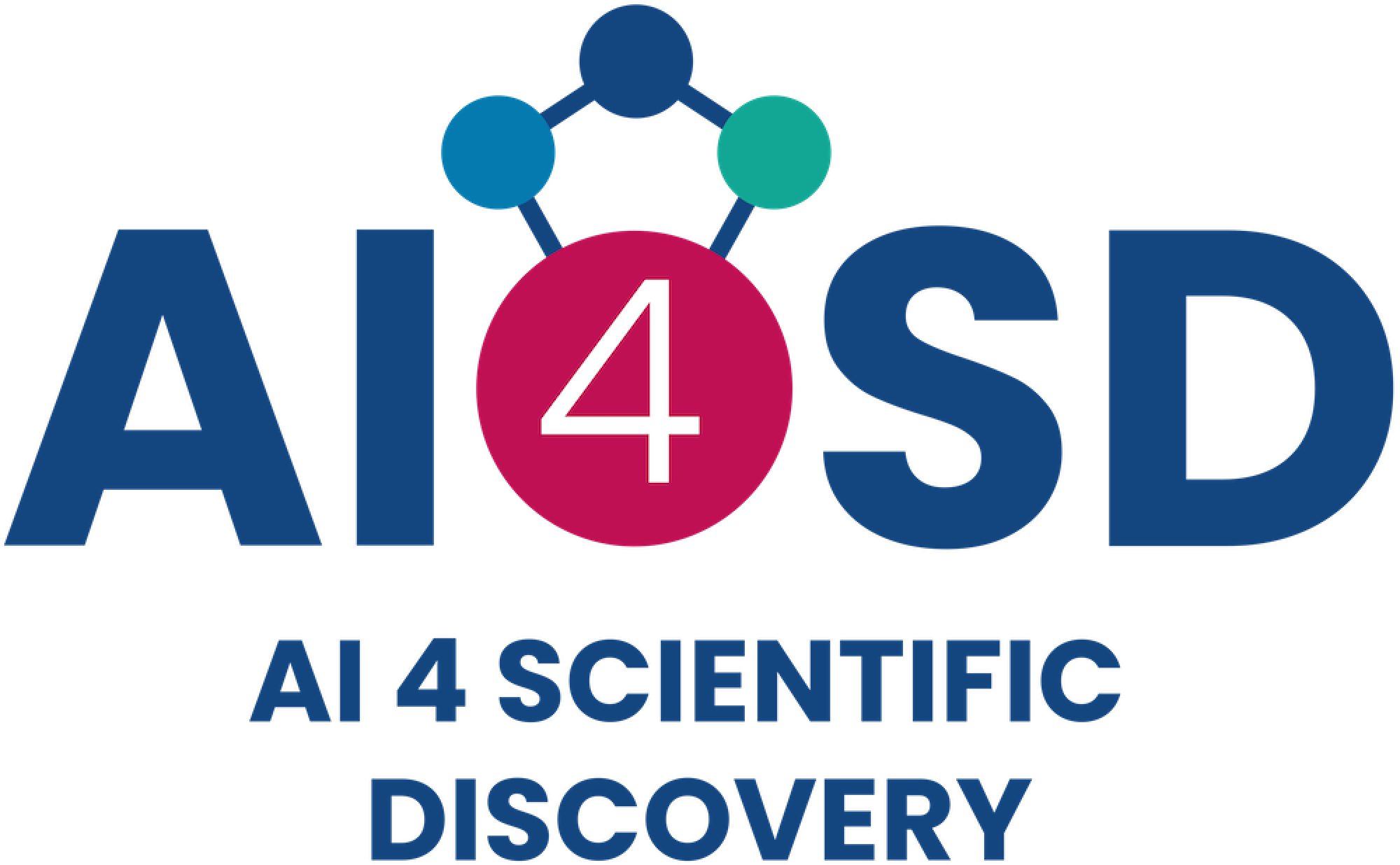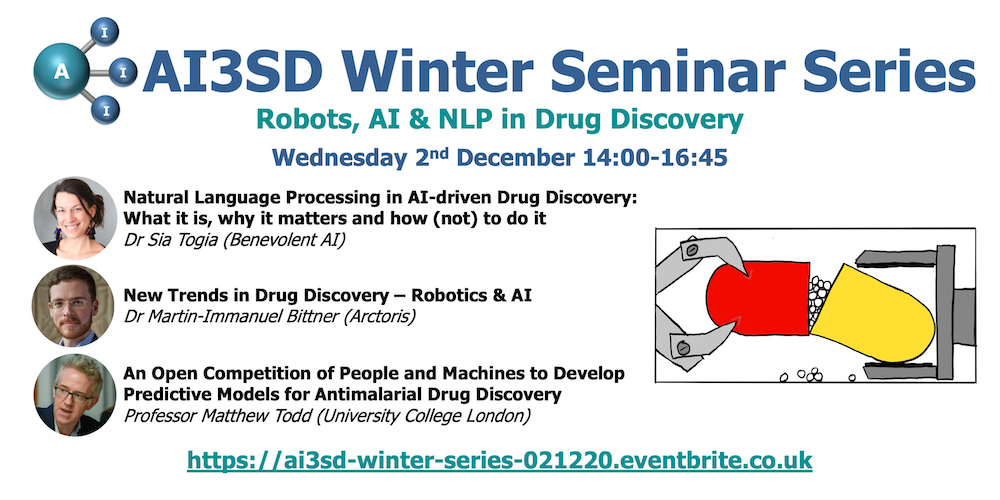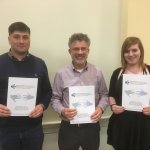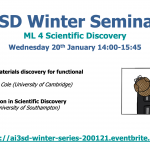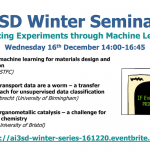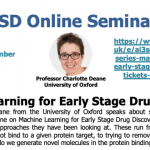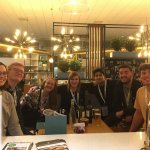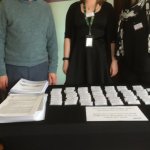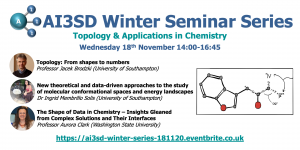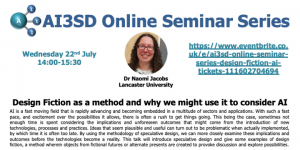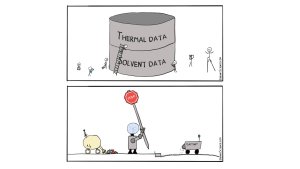This seminar was the second of ten in our AI3SD Winter Seminar Series. This seminar was hosted online via a zoom webinar. The event was themed around Enhancing Experiments through Machine Learning and consisted of three talks on this subject. Due to confidentiality reasons, below are two of the three videos of the talks with speaker biographies, and the full playlist of this seminar can be found here.
Natural Language Processing in AI-driven Drug Discovery: What it is, why it matters and how (not) to do it – Dr Sia Togia (Benevolent AI) [Video cannot be shared]
Abstract: Natural Language Processing (NLP) has been used in drug discovery for decades. However, the emergence of AI-driven drug discovery coupled with recent advances in NLP have redefined the relationship between the two fields. This talk will focus on major classes of NLP techniques used in drug discovery as well as challenges arising when creating real-world biomedical NLP systems. The talk will cover topics such as dataset selection and construction, evaluation, models, methodology, research process and structure of NLP systems in AI-driven drug discovery.
Bio: I am a Lead AI Scientist at Benevolent AI with a focus on NLP. I have a PhD in NLP from the University of Cambridge and have spent the last six years building NLP systems in the AI industry, mostly in the biomedical domain. I specialise in Information Extraction, Information Retrieval and Knowledge Representation and have a strong interest in creating NLP systems that solve real-world problems.
New Trends in Drug Discovery – Robotics & AI – Dr Martin-Immanuel Bittner (Arctoris)
Martin-Immanuel Bittner MD DPhil is the Chief Executive Officer of Arctoris, the world’s first fully automated drug discovery platform that he cofounded in 2016. He graduated as a medical doctor from the University of Freiburg in Germany, followed by his DPhil in Oncology as a Rhodes scholar at the University of Oxford. Martin has extensive research experience covering both clinical trials and preclinical drug discovery and is an active member of several leading cancer research organisations, including EACR, AACR, and ESTRO. In recognition of his research achievements, he was elected a member of the Young Academy of the German National Academy of Sciences in 2018.
Video Highlights:
04:29-5:23 – The reason why we need to rethink drug discovery
05:34-7:20 – Underlying reasons for the decline in pharmaceutical R&D productivity
12:33-13:15 – Automation companies emerging in the space
16:03-17:20 – Advantages of automating experimentation
23.22-25:22 – Opportunities arising from combining robotics and AI
An Open Competition of People and Machines to Develop Predictive Models for Antimalarial Drug Discovery – Professor Matthew Todd (University College London)
Mat Todd was born in Manchester, England. He obtained his PhD in organic chemistry from Cambridge University in 1999, was a Wellcome Trust postdoc at The University of California, Berkeley, a college fellow back at Cambridge University, a lecturer at Queen Mary, University of London and between 2005 and 2018 was at the School of Chemistry, The University of Sydney. He is now Chair of Drug Discovery at University College London. He lives in Greenwich, London, with his wife and two children. Mat’s research interests include the development of new ways to make molecules, particularly how to make chiral molecules with new catalysts. He is also interested in making metal complexes that do unusual things when they meet biological molecules or metal ions. His lab motto is ”To make the right molecule in the right place at the right time”, and his students are currently trying to work out what this means. He has a significant interest in open science, and how it may be used to accelerate research, with particular emphasis on open source discovery of new medicines. He founded and currently leads the Open Source Malaria (OSM) and Open Source Mycetoma (MycetOS) consortia, and is a founder of a broader Open Source Pharma movement. He is on the Editorial Boards of PLoS One, ChemistryOpen and Nature Scientific Reports.
